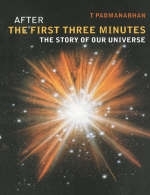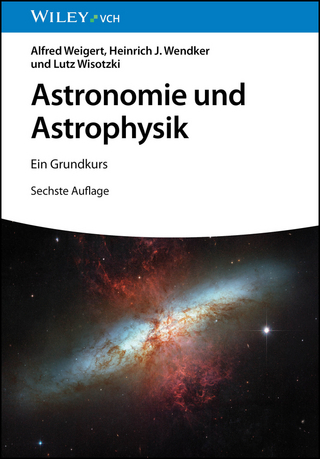
After the First Three Minutes
The Story of Our Universe
Seiten
1998
Cambridge University Press (Verlag)
978-0-521-62972-0 (ISBN)
Cambridge University Press (Verlag)
978-0-521-62972-0 (ISBN)
How does our Universe evolve? And how did structures like stars and galaxies form? For general readers who want to get to grips with what we really do and don't know about our Universe, this book provides an exciting, state-of-the-art picture of contemporary cosmology.
How does our Universe evolve? And how did structures like stars and galaxies form? In recent years, scientists' understanding of these profound questions has developed enormously. This book presents a clear and detailed picture of contemporary cosmology for the general reader. Unlike existing popular books on cosmology, After the First Three Minutes does not gloss over details, nor shy away from explaining the underlying concepts. Instead, with a lucid and informal style, the author introduces all the relevant background and then carefully pieces together an engaging story of the evolution of our Universe. We are left with a state-of-the-art picture of scientists' current understanding in cosmology, and a keen taste of the excitement of this fast-moving science. Throughout, no mathematics is used; and all technical jargon is clearly introduced and reinforced in a handy glossary at the end of the book. For general readers who want to get to grips with what we really do and don't know about our Universe, this book provides an exciting and uncompromising read.
How does our Universe evolve? And how did structures like stars and galaxies form? In recent years, scientists' understanding of these profound questions has developed enormously. This book presents a clear and detailed picture of contemporary cosmology for the general reader. Unlike existing popular books on cosmology, After the First Three Minutes does not gloss over details, nor shy away from explaining the underlying concepts. Instead, with a lucid and informal style, the author introduces all the relevant background and then carefully pieces together an engaging story of the evolution of our Universe. We are left with a state-of-the-art picture of scientists' current understanding in cosmology, and a keen taste of the excitement of this fast-moving science. Throughout, no mathematics is used; and all technical jargon is clearly introduced and reinforced in a handy glossary at the end of the book. For general readers who want to get to grips with what we really do and don't know about our Universe, this book provides an exciting and uncompromising read.
Preface; 1. Introducing the universe; 2. Matter, radiation and forces; 3. Observing the universe; 4. Getting to know the universe; 5. Expanding universe; 6. Forming galaxies; 7. Universe at high redshift; 8. Open questions; Glossary; Further reading; Index.
| Erscheint lt. Verlag | 5.2.1998 |
|---|---|
| Zusatzinfo | 5 Tables, unspecified; 5 Halftones, unspecified; 22 Line drawings, unspecified |
| Verlagsort | Cambridge |
| Sprache | englisch |
| Maße | 178 x 252 mm |
| Gewicht | 597 g |
| Themenwelt | Sachbuch/Ratgeber ► Natur / Technik ► Weltraum / Astronomie |
| Naturwissenschaften ► Physik / Astronomie ► Astronomie / Astrophysik | |
| ISBN-10 | 0-521-62972-1 / 0521629721 |
| ISBN-13 | 978-0-521-62972-0 / 9780521629720 |
| Zustand | Neuware |
| Haben Sie eine Frage zum Produkt? |
Mehr entdecken
aus dem Bereich
aus dem Bereich
die Suche nach der Urkraft des Universums
Buch | Hardcover (2023)
Klett-Cotta (Verlag)
25,00 €
Perspektiven auf die Menschheit
Buch | Hardcover (2024)
Klett-Cotta (Verlag)
25,00 €


